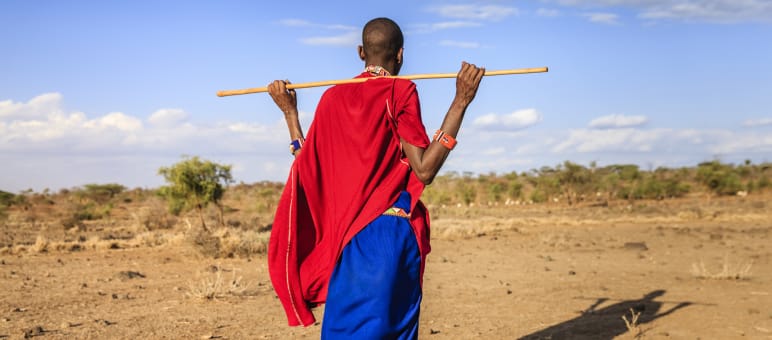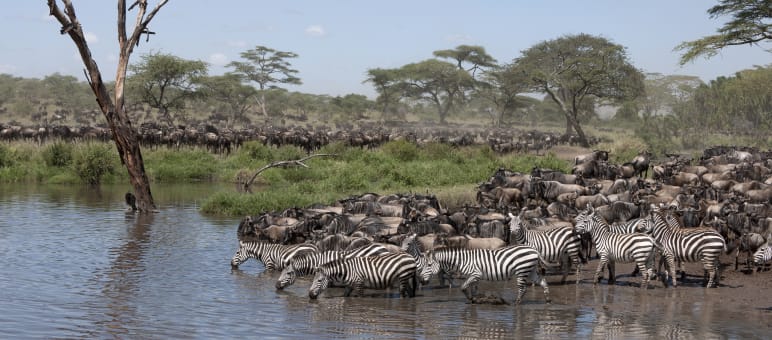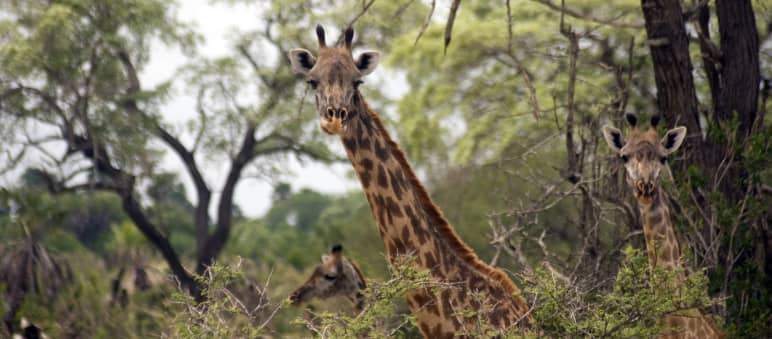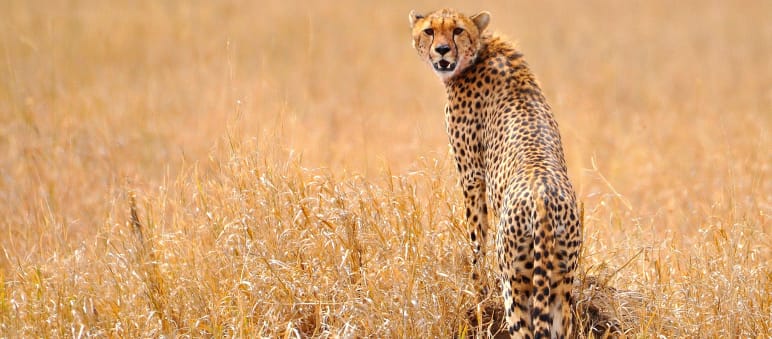A radio station for communities and nature
In Tanzania’s vast savannas, a bold experiment is underway. A radio station is creating something rare: a space where pastoralists and conservationists, government officials and Indigenous leaders, can finally hear each other. The result? A community discovering that peace might be possible after all.
Project Overview
Project FocusRainforest Defenders
Project Objective ensuring better protection for the Maasai people and nature
Activities extending the coverage of a radio station and focusing its content on local issues
Vast herds of zebra and wildebeest, elegant giraffes, imposing elephant families, sleek cheetahs – for many in the global North, the savannas of eastern Africa are synonymous with untouched nature, a veritable Garden of Eden. But despite its beauty, the region cannot truly be called “untouched”. People, especially the Maasai, have lived in the grasslands for many generations. They have indeed “touched” their environment – but lightly and respectfully, without destroying it.
East Africa is not only the “cradle of humanity”, but also, in a sense, the “cradle of protected areas”. Some of the world’s first national parks were established there – not by local people seeking to preserve their homeland, but by colonial rulers, especially big game hunters. At the time, they believed that white people needed to protect elephants, lions, and the like from the threat of native Africans.
People versus protected areas
But what about the people who live in the savannas of the Serengeti and around Ngorongoro Crater? The principle of “fortress conservation” requires them to be resettled – by force, if necessary. The price of conservation is thus the violation of human rights.
The Maasai of Tanzania and Kenya have lived and continue to live with this bitter experience. For many generations, the semi-nomadic people have maintained their self-sufficiency through livestock and small-scale farming. But now they are accused of damaging nature with their livestock. At the same time, however, the herders in their iconic blue and red robes are popular photo opportunities for the tourists who are a major source of income for the country.
The Maasai – a tourist magnet and a threat
To boost international tourism, plans are afoot to expand the Ngorongoro Conservation Area – a UNESCO World Heritage Site. This would displace more than 80,000 people. In the Loliondo region, another 70,000 people will be evicted to make way for safari and hunting tourists. In June 2022, the situation escalated and turned violent, with security forces firing on protesters. Environmental and human rights organizations criticized the evictions, and Rainforest Rescue launched a petition on the issue.
The wave of violence temporarily forced Maasai leader Yannick Ndoinyo and leaders of other Indigenous communities into exile in Kenya, where we provided emergency shelter and food. Yannick is now back in Tanzania running the NGO Traditional Ecosystems Survival Tanzania (TEST) in the city of Arusha, and we are providing longer-term support.
Loliondo FM Radio
Loliondo FM Radio is at the heart of our project. It currently covers an area of Tanzania and Kenya with a population of 200,000. With improved technology, its coverage area could be expanded to reach up to 3.5 million people from Lake Victoria to Mount Kilimanjaro. Since 2011, the station has covered a wide range of social issues, including women’s rights, reproductive health and environmental education. Now, rural issues will become a focus.
Active citizen journalism will be at the heart of the planned programming. Women, young people, children and the elderly will be given a voice in debates and discussions. “Listeners’ clubs” will broaden the audience and the range of topics.
For the pastoralists, respect for the land and their cattle is ingrained in their souls. We want to give voice to many different land stories and use our radio programs to generate better understanding not only of Maasai beliefs but those of others too – farmers, hunters and conservationists.” –Yannick Ndoinyo
“We want shared understanding and respect for our ways and those of others too. We want to end the conflict. We want peace in our lands. We want to forge new relationships and create a situation where people and wildlife can live in harmony on our land – just as our ancestors did. Our focus will be making lasting peace in Loliondo. We want to change the hearts and minds of communities, government, and other land users to choose peace and harmony among themselves,” says Mshao Naingisa, a Laigwanani (traditional leader) from Ololosokwan on the edge of the Serengeti.
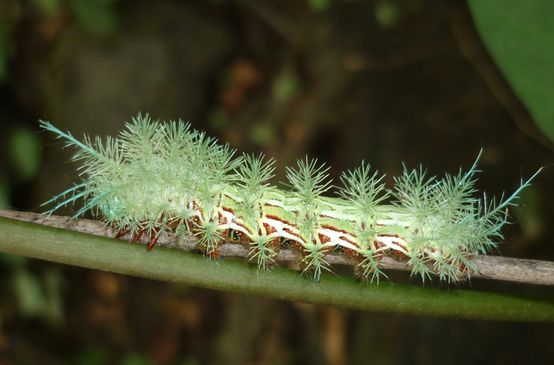
Biodiversity
Life on Earth originated around 4 billion years ago. Since then, an unfathomable number of species have evolved, around half of which are insects. Numerous plant and animal species have yet to be documented, and many new ones are being discovered every day.
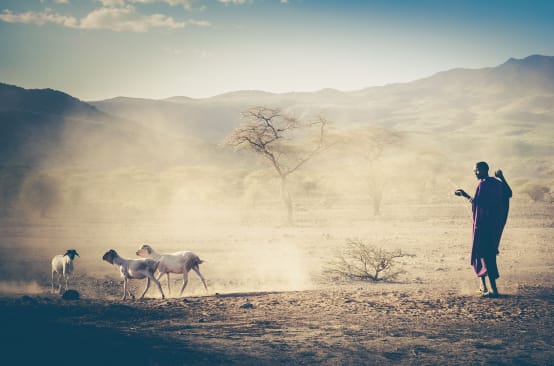
World Bank project in Tanzania: Rangers kill two villagers
In Tanzania, rangers from the national park authority, which was co-financed by the World Bank, have killed two villagers.
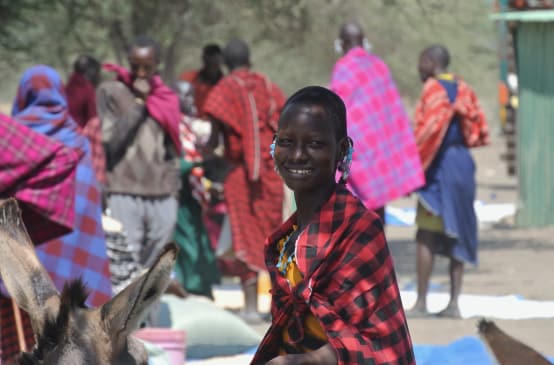
Tanzania: Government backs down after Maasai protests
Tanzania’s government tried to strip 100,000 Maasai of voting rights to force them from their lands. After protests, the plan was reversed.
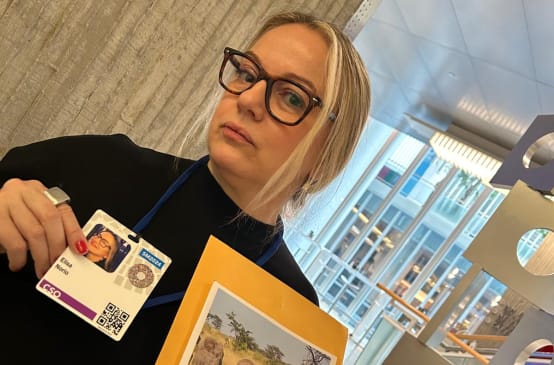
World Bank suspends controversial financing in Tanzania
The World Bank is suspending funding for the controversial REGROW project in Tanzania. The Bank gave Rainforest Rescue its assurance during its Spring Meetings.

